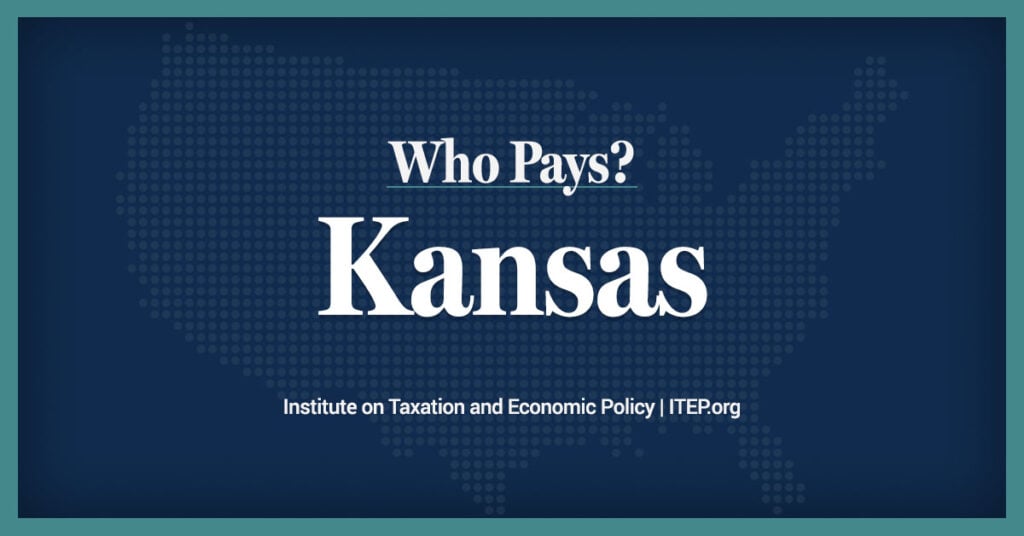Tax policy themes have begun to crop up in states as governors give their yearly addresses and legislators lay out their plans for the 2024 legislative season. Unfortunately for state budgets, tax cuts continue to remain a priority. Kansas lawmakers have sprung out the gate with a plan to impose a flat income tax (among other things), which would exacerbate the state’s already-upside down tax system. Meanwhile, in South Dakota, the House has its eye on making their temporary sales tax cut permanent—the plan has already received support from the governor. And governors in Rhode Island and Virginia announced their respective goals for cutting the corporate minimum tax and eliminating the car tax, the latter on top of proposed income tax cuts and a sales and use tax increase.
Major State Tax Proposals and Developments
- The KANSAS legislature passed a Republican-sponsored tax cut plan out of the Senate that would cost the state $1.6 billion over three years. The bill would enact a 5.25 percent flat income tax, fully exempt Social Security benefits, increase the homestead exemption to $100,000, and index the standard deduction and personal exemption to inflation. Over 63 percent of the tax cut would go to households in the top 20 percent of households who, on average, earn more than $315,000 a year. Identical changes to Social Security benefits and the homestead exemption were part of Gov. Kelly’s bipartisan tax cut plan. – NEVA BUTKUS
- The SOUTH DAKOTA House passed legislation that would permanently reduce the sales tax rate from 4.5 percent to 4.2 percent (a cut that was in effect on a temporary basis). Gov. Kristi Noem supports the tax cut which will cost just over $100 million annually. – MILES TRINIDAD
Governors’ Annual Addresses and State of State Speeches
- RHODE ISLAND Gov. Daniel McKee proposed reducing the state’s corporate minimum tax from $400 to $350 and also called on increasing the amount of retirement income that is tax exempt. He also proposed eliminating the state’s car tax, the tangible property tax for 75 percent of businesses, and creating a sales tax exemption on the trade-in value of motorcycles for new motorcycle purchases.
- VIRGINIA Gov. Glenn Youngkin proposed eliminating the car tax, which was originally not included in his budget proposal to lawmakers that would cut income taxes while increasing the sales tax.
- WEST VIRGINIA Gov. Jim Justice has proposed a set of tax cuts targeted at seniors and families with children. Specifically, he proposes removing the cap on the state’s existing Social Security tax exemption, creating a state childcare credit equal to 50 percent of the federal credit, and expanding both the eligibility cap and maximum credit of the state’s existing Senior Citizen Property Tax Credit.
State Roundup
- COLORADO lawmakers have set the stage to repeal and replace a 2023 bill that doubled the state Earned Income Tax Credit, after a lawsuit challenging the law on the grounds that it was passed unconstitutionally during the November special session.
- A KENTUCKY proposal to exempt diapers from the state’s sales tax is picking up steam, as it adds the state’s Senate Majority Leader to the bipartisan effort.
- In the face of a $1.1 billion shortfall, MARYLAND Gov. Wes Moore introduced a plan that aims to balance the budget without raising taxes. His proposal reduces spending on transportation and higher education and redirects funding to other areas such as public education. The proposal also includes a new fee for a program that currently provides free childcare for qualifying families, asking families to pay up to 7 percent of their income for the cost of childcare.
- MONTANA Gov. Greg Gianforte has tasked a bipartisan group with formulating recommendations on how the state can lower property taxes for residents.
- Democrats in NEW MEXICO are once again pushing to increase alcohol taxes by 25 cents a drink. The state, which hasn’t raised alcohol taxes in 30 years, leads the nation in alcohol-related deaths.
- OKLAHOMA Gov. Kevin Sitt has called a special session starting one week before the state’s regular session to press for an income tax cut. The governor—who has called similar sessions before—faces stiff resistance from legislative leaders, who remain skeptical that a cut is fiscally responsible, or that a special session one week before the regular session is necessary.
- The U.S. Supreme Court has declined to review a lawsuit challenging WASHINGTON state’s Capital Gains Excise Tax. The decision is great news for the people of Washington, as the tax improves tax fairness in the state, which was previously the most regressive tax code in the nation. It is also already bringing in nearly $900 million per year for childcare, early education, and school construction. Opponents, however, are still planning to attempt to repeal the tax at the ballot.
- WISCONSIN Republicans have come to an agreement on their latest attempt at an income tax cut. The legislation would condense the state’s middle income tax brackets to a single bracket that would tax income between $20,000 and $300,000 at 4.4 percent for married filers and between $15,000 and $225,000 for single filers.
What We’re Reading
- NOLA.com discusses how property tax freezes are chipping away at local revenues in Louisiana with little transparency on how they are impacting local revenue collections.
If you like what you are seeing in the Rundown (or even if you don’t) please send any feedback or tips for future posts to Aidan Davis at [email protected]. Click here to sign up to receive the Rundown via email.




